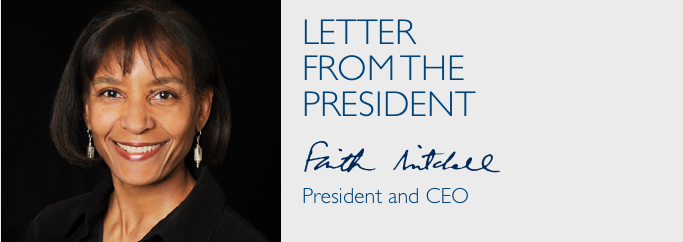
As legend has it, GIH began as a conversation among foundation program officers at a Nathan’s Famous Hot Dogs restaurant in New Jersey, in 1978. At the time, there was no organization dedicated to the needs and concerns of health funders. The technology of the day—telephones, letters, and written reports—made connecting difficult. It was not easy to find out what other foundations were doing or to share experiences and best practices.
Faced with these challenges, the program officers recognized the need for a national organization that would help create an infrastructure for health philanthropy. From their conversation, GIH took shape as a program of meetings and workshops focused on key health issues for concerned professional staff from private foundations and corporations. “Before GIH, health philanthropy consisted of scattered foundations making scattered grants. GIH brought perspective to the field,” observes Paul Jellinek, a former board member.
In 1982, our official birth year, the first office opened in New York City. Ten years later, we moved to Washington, DC. With the wave of conversions in the late 80s and early 90s, GIH grew rapidly. We were a critical source of advice for these new funders, helping them understand what it means to be a health foundation. From a handful of initial Funding Partners, GIH grew steadily into the national network our founders envisioned.
The celebration of GIH’s 35th anniversary kicks off this June at the 2017 annual conference. In the months ahead, we will be looking backward to high points and past accomplishments and—most important—forward to what’s next for health philanthropy. Our look at the future begins with a series of blog posts contributed by Terrance Keenan Fellows, a fitting start since Terry Keenan was one of GIH’s forefathers. A common theme of these posts is how health philanthropy can support social change. The approaches they describe include developing new leadership, exploring new ways to make a lasting impact, thinking big, and strategically tackling tough issues. The posts reflect how definitions of both health and the role of health philanthropy are evolving, as funders look for new ways to make a difference in communities.
GIH’s programming is also evolving, with the introduction of new strategies for supporting Funding Partners. For example, we will shortly launch a new fee-based program called Enhanced Technical Assistance (Enhanced TA) that will enable foundations to work with experts from a pool of highly knowledgeable consultants experienced in all aspects of health philanthropy. Enhanced TA supplements our ongoing, pro bono program of strategic advice and technical expertise that provides Funding Partners with guidance and feedback to improve their operations and programming.
The years ahead will challenge the human, organizational, and financial resources of health philanthropy as never before. GIH looks forward to the responsibility of helping funders meet those challenges. We sustain the vision of our founders: to achieve better health through better philanthropy.

